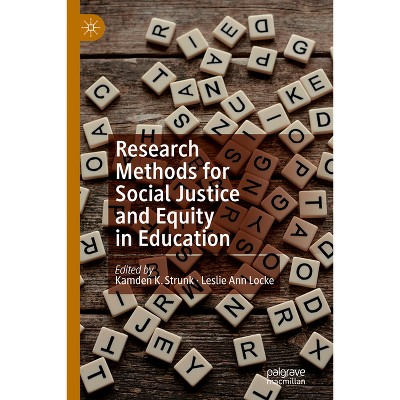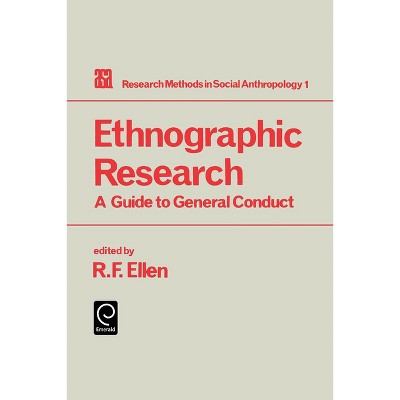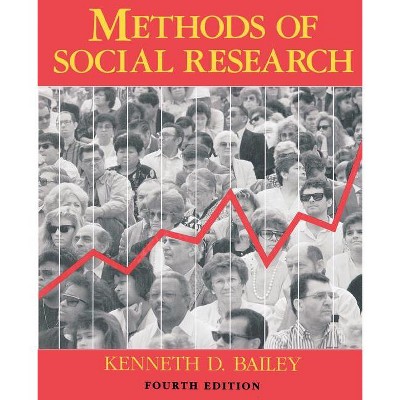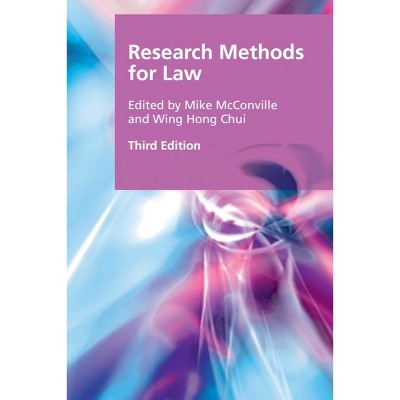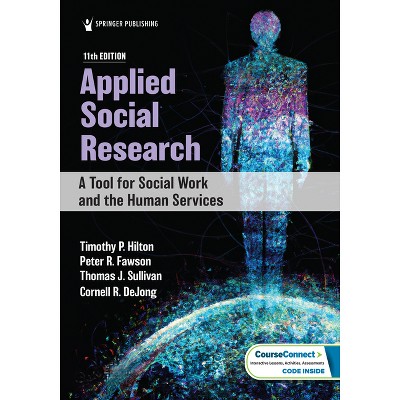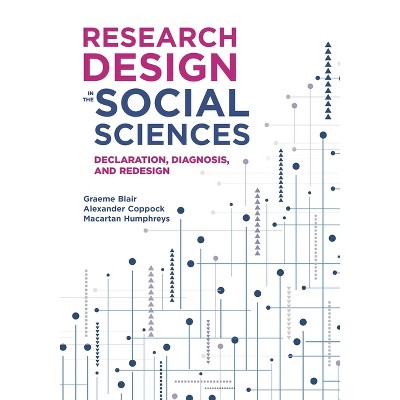Sponsored

Social Research Methods - by Joshua Iyadurai (Paperback)
In Stock
Sponsored
About this item
Highlights
- This book demystifies designing and conducting qualitative, quantitative, and mixed methods research with scientific rigor.
- Author(s): Joshua Iyadurai
- 300 Pages
- Social Science, Research
Description
About the Book
Social Research Methods demystifies designing and conducting qualitative, quantitative, and mixed methods research with scientific rigor.
Book Synopsis
This book demystifies designing and conducting qualitative, quantitative, and mixed methods research with scientific rigor. Social Research Methods, benefits researchers from theology and religious studies in designing interdisciplinary research and interacting with social sciences and other disciplines to study contextually relevant issues by focusing on lived religion, lived theology, lived experience, and real-world problems.
Joshua Iyadurai skillfully guides researchers with a step-by-step guide on the practical nuances of choosing a topic, engaging literature, selecting a paradigm, collecting and analyzing data, interpreting the findings, and writing a research proposal and a dissertation/thesis/article for qualitative, quantitative, and mixed methods research. A separate chapter on supervising and examining social research helps students and professors to understand each other's role in field-based studies.
Social Research Methods is an indispensable resource for researchers from theology and religious studies and a valuable practical guide for researchers from social sciences and humanities.
Why Read this Book?
- Instills confidence in researchers to design and conduct qualitative, quantitative, and mixed methods research with scientific rigor.
- The first of its kind to introduce qualitative, quantitative, and mixed methods strategies with guidance for choosing a topic and collecting and analyzing data for theology and religious research.
- Up to date and authoritative by arraying current and leading methodology texts with examples for researching lived experiences, lived religion, and lived theology.
- A step-by-step guide for writing every section of a research proposal and for writing each chapter for qualitative, quantitative, and mixed methods dissertation/thesis, which will make the research journey pleasant for students.
- Provides tips for writing DMin dissertation and journal article.
- Offers guidelines for supervisors and examiners for assisting and assessing student projects.
- Review Questions and Further Help at the end of each chapter; Glossary and Index, which are among other helpful resources for researchers.
- An invaluable resource for students and professors from social sciences, education, development, management, and the humanities, besides theology and religious studies.
- A practical guide for researchers from churches, religious bodies, NGOs, and others.
Review Quotes
"This book fills an important niche for postgraduate researchers embarking on empirical research in Practical Theology or Religious Studies. Those who have little or no background in the social sciences will find this a clear and well-structured introduction on how to conceive a research project and what methods are available to answer their research questions. Reading this before they embark on their journey could save a lot of problems further down the road."
ANDREW VILLAGE, Professor of Practical and Empirical Theology, York St John University
"Here is a fascinating and engaging handbook every researcher in theology and religious studies should read and assimilate. It fulfils a felt need by pooling the wealth of sociological methodologies and applying them to the scientific study of lived religion. The author has done a unique service, and his work will remain a point of reference for years."
FELIX WILFRED, Founder and Director of Asian Centre for Cross Cultural Studies, Chennai
"The highly readable, yet exhaustive and authoritative text covers all aspects of the variety of methods available to contemporary scientists who either produce or evaluate empirical research. The text is intended for students and scholars of theology and religious studies, but anyone interested in how religion is practiced in different cultural contexts and want to understand individual lived experiences and interpretations will find this text an invaluable guide."
RALPH W. HOOD Jr., Professor of Psychology, University of Tennessee
"Compared to other approaches to theology and religious studies, missiology has the propensity to use social science methods. This clearly written introduction to complex terrain will enable students to navigate it and develop tools for their own project, and students are more likely to recognize their research interests in its examples. Especially useful features include the glossary and the section on student supervisors/mentors and examiners. This volume is authoritative and cognisant of other leading texts."
KIRSTEEN KIM, Pierson Professor of World Christianity, Fuller Theological Seminary
"My hope is that this very practical book, using up-to-date resources will help to develop this important form of study further.
ROBIN GILL, Emeritus Professor of Applied Theology, University of Kent
"This is a valuable resource written in a way that theological students will understand, and supervisors will appreciate! It takes the student "by the hand" from the formulation of the research topic through methodological positioning and choices and closes with a chapter on supervision expectations. I look forward to prescribing it to my own postgraduate students."
NADINE BOWERS DU TOIT, Professor-Theology and Development, University of Stellenbosch
"This volume fills an important gap in the field by bringing social scientific methods into theology and religious studies. All parties in this conversation have much to gain from a sustained dialogue, and this book moves us in that direction."
JOHN BARTKOWSKI, Professor-Sociology, University of Texas at San Antonio
The book aims to catalyze theological scholarship using social research methods with scientific precision. Scholars, educators, and graduate students will find this text a welcome resource.
DAVID TARUS, Executive Director, ACTEA
Shipping details
Return details
Trending Non-Fiction






